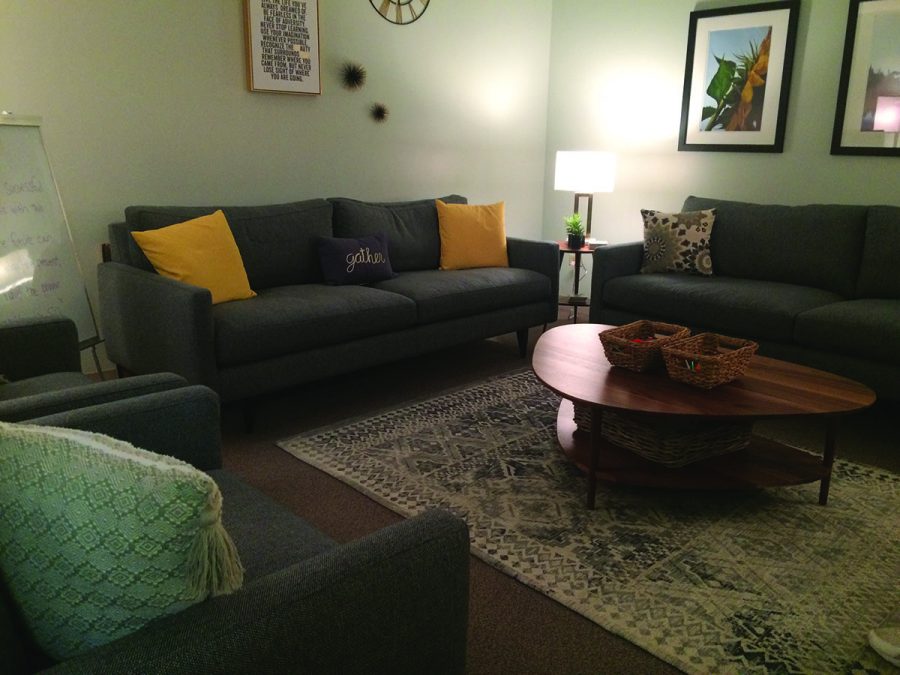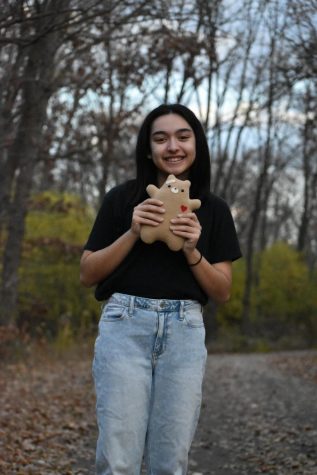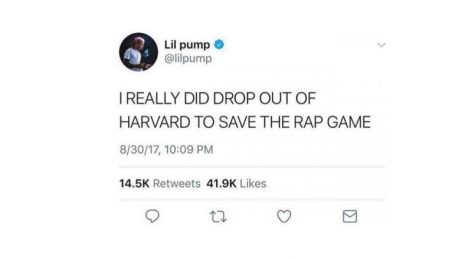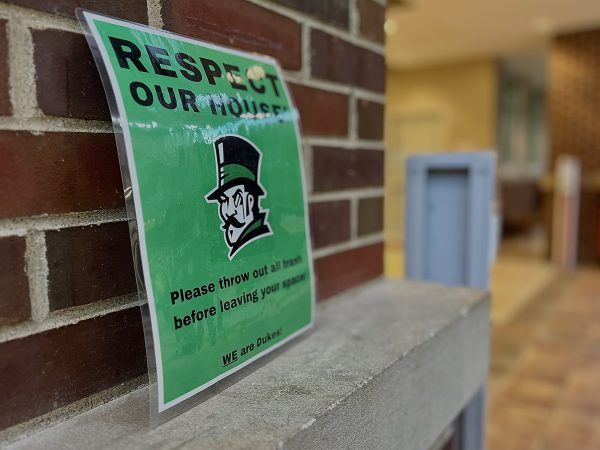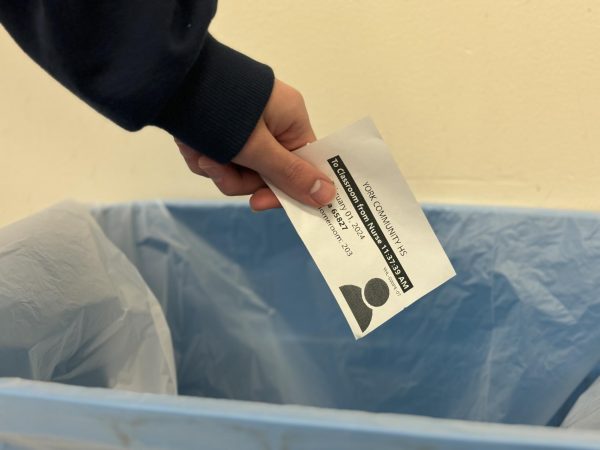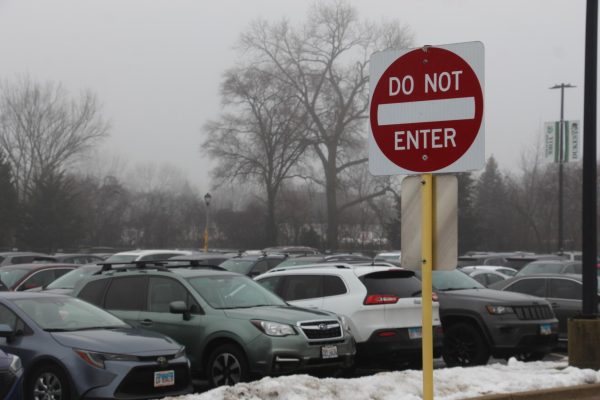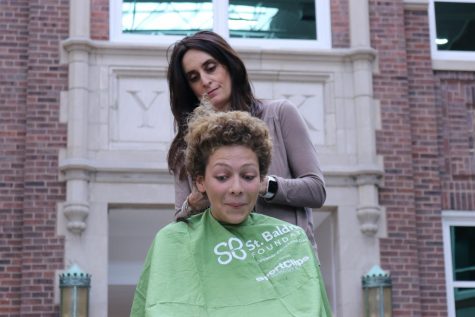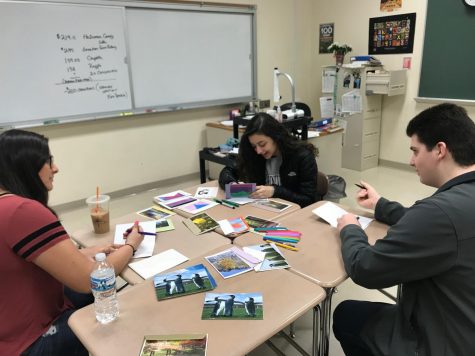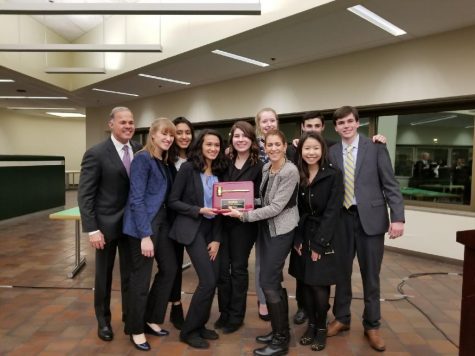What Now?: York uses group counseling to fight substance abuse
The Rotary Club of Elmhurst donated $8,000 to create a room designated for group counseling sessions, a room that’s housed in Student Services.
It’s clear that there are some York students who struggle with substance abuse, and perhaps have serious addictions and need some help. This is why a new program designed to nip substance abuse in the bud was finalized by the administrative team on Nov. 1. The system is split into two parts: providing a free, voluntary assessment to determine treatment paths for those suffering from substance abuse, and then in-school group counseling sessions which aim to lessen any emotional turmoil that could lead to substance abuse in the future.
Assistant Principal Melissa Moore has spearheaded this project for the administration, working directly with Rosecrance Health Network, which focuses on substance abuse treatment, to develop an avenue through which students can get help should they need it.
“The first part of it is we are going to providing students the ability to access an assessment that would be done by somebody from Rosecrance Health Network, and that assessment would be done free of charge,” said Moore. “It would be done with students and parents totally voluntary –it would just be if there’s a student who has been using substances, and there’s a need to do an assessment to see what kind of treatment options are available.”
York Student Services has always offered lists of community resources that serve a similar purpose, but this program is meant to make them far more accessible by offering it on school grounds.
“The purpose of offering the assessment at York is to make it easier for students and families who may have difficulties completing an off-site assessment due to schedule conflicts, transportation issues, or other challenges,” said Moore. “Any students or families who are interested in the types of resources available in the community should contact their school social worker.”
Results of this assessment are completely confidential–the school will not be allowed to see any of it unless the student or parents turn them over, and even then it would only be social workers and counselors, never teachers. These results will help determine whether or not certain students need treatment and what kinds of treatment would be most beneficial.
“One of the treatments we’ll be providing at York going forward is group counseling, like monthly sessions the student can attend,” said Moore. “It might be something where students have already participated in more intense treatments, like an outpatient or inpatient program, and instead of just being left with nothing, they’ll have these monthly checkins.”
Counseling is a reputed method of treating those with substance abuse, for both adults and teenagers–in fact, DuPage County has been using it for years for those guilty of drug crimes
There’s what’s called DuPage County Drug Court, which offers certain counseling programs,” said Detective Nick Waldenmeyer with the Elmhurst Police Department. “It’s a diversion program and allows those charged with felony drug possession crimes to seek treatment resources instead of being prosecuted. Were looking for restorative justice–so getting them back into the community and restoring them instead of prosecuting them.”
The counseling sessions at York are completely voluntary, just like the assessments. If a counselor or social worker has reason to believe that a student could benefit from the sessions, however, they may take initiative and invite these students to join them.
“When someone’s coming in independently more often than not we could invite them to join a group session,” said Ashley Tucker, a counselor here at York. “[It could also be] when we get notice from referrals that they’ve got an issue that’s a little bit more significant.”
The Rotary Club of Elmhurst has donated $8,000 to help develop an area in the school reserved only for group counseling sessions, which York has offered in the past, but never to this degree.
“They offer [these] groups, but we’ve never had a dedicated space to [them]; we’ve always used like the conference room, which is kind of a stale environment, so it’s really nice that the Rotary Club is able to come in and provide the funding to have a really nice, comfortable, better group space,” said Tucker. “It’s also nice for privacy and confidentiality.”
The counseling is aimed at stopping substance abuse before it happens–one of the leading causes of substance abuse is overwhelming stress, and these sessions are meant to alleviate that.
“A lot of times it’s not necessarily that students are using substances here in high school, but that they might be more at risk to using substances after leaving high school because they don’t have the skills that they might need to just survive with all of the stressors that are out there in the real world,” said Moore. “One of the things I talked about was wanting to make sure we reach more and more students to help teach [them] healthy coping skills, how to manage stress and anxiety, how to just process and talk about common experiences that they’re having.”
These counseling sessions are expected to have a great effect, as stress–particularly stress resulting from school–is one of the biggest contributors to substance abuse in teenagers.
“Peer pressure, friend groups, or overall stress–family stress, school stress–is a big [contributor to substance abuse],” Waldenmeyer said. “Whether they’re in middle school or high school, whatever classes they’re in–the stress from that.”
Recognizing this, the police department takes special care when in comes to teenagers to educate and restore them instead of immediately prosecute them.
“We also have here at our police department a unit that specializes in drug crimes called the Mission Team, and after they arrest local drug dealers that are affecting our youth they try to reach out to people in the area that are affected by the drug dealers or drug buyers,” said Waldenmeyer. “Also they’ll meet with parents to educate them about the drug that their son or daughter is caught with and give them options as far as treatment, like Peer Jury or Alive at 25.”
Whether it’s through community programs or the one being offered here at York, treatment for those suffering from substance abuse is not beyond reach–all you need to do is ask.
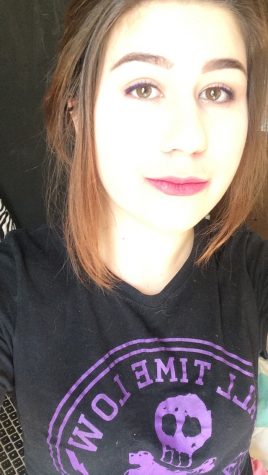
Gracie is a junior at York, in her second year on the York Hi staff as the Graphics Editor. She spends a majority of her time drawing, and on extracurriculars...


